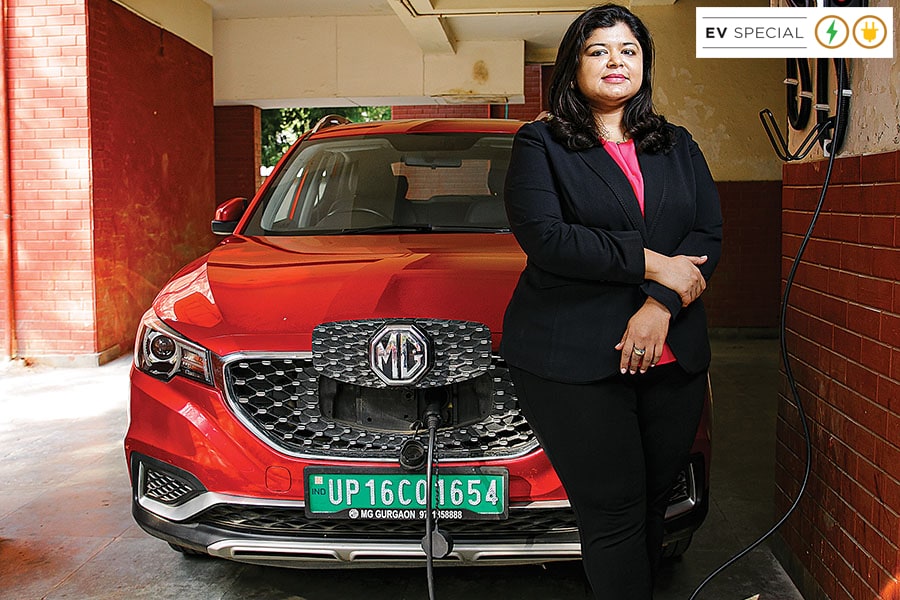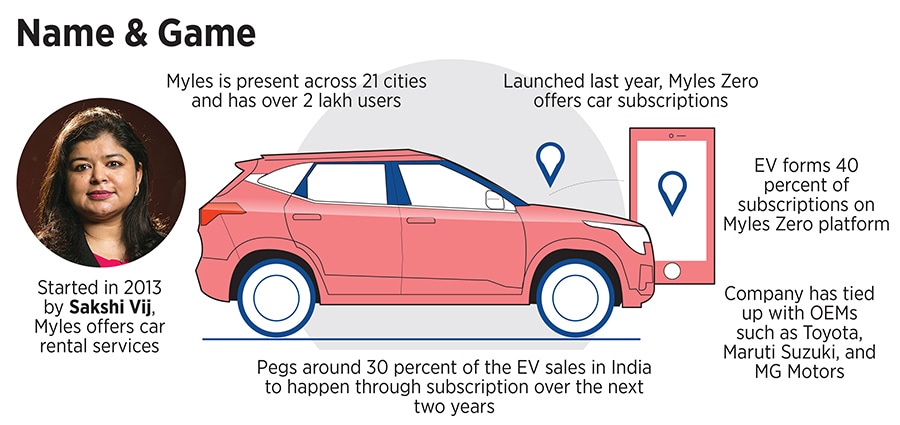
How Sakshi Vij is melting electric hesitancy with Myles Zero
New technology, high cost of ownership, battery life and range are the three biggest factors driving EV adoption hesitancy. Myles Zero's EV subscription-only model aims to hit three targets with one plan
 Sakshi Vij, founder, Myle
Sakshi Vij, founder, Myle
Image: Madhu Kapparath
The toss-up between ‘electric’ and ‘shock’ was a no-brainer for Ritesh Dhingra. For the CEO of Cossmic Products, a manufacturer of personal care products, two dominant reasons for driving home an electric car this year were simple. First, the running costs of petrol and diesel vehicles were fast turning out to be a shocking experience. Equally disturbing was the devastating impact of fossil fuels on the environment. Mumbai-based Dhingra, who had owned multiple cars in the past, such as MG Hector and Hyundai Creta, subscribed to an electric car from MG Motor from Myles, an online car rental platform that rolled out electric vehicles (EVs) in its subscription plan ‘Myles Zero’ last year.
Dhingra reckons he made an electrifying choice. While the EV carried a tag of over ₹25 lakh, the businessman settled for a monthly payment of around ₹59,000 and drove the car home. There was no down payment, zero maintenance cost, and insurance too was covered. The hassle-free car ownership—with a minimum subscription period of 12 months for a new car—made ample sense. “Subscription helps you enjoy the latest technology without the risk of owning a car,” he says.
Cut to Delhi. Sakshi Vij too is excited. And she has all the reasons to be so. “EVs form 40 percent of vehicles on Myles Zero, which has 2,000 cars on its platform,” says the founder of Myles, started in 2013. Adoption for EVs on subscription, she underlines, will be far quicker than internal combustion engine (ICE) vehicles. “I think subscription will melt ICE,” she smiles.
Unlike electric two-wheelers, where consumers have a wide range of options and price points as low as ₹50,000, electric cars are still prohibitively priced. And it’s likely to remain so in the future. So the only way in which such cars can find a wider appeal is via subscription, which trumps leasing on a couple of counts, especially the biggest one—long lock-in periods. Vij explains why electric car subscription is set to take off in India. Such a flexible form of ownership, she says, takes care of three primary concerns of users.
(This story appears in the 30 November, -0001 issue of Forbes India. To visit our Archives, click here.)










